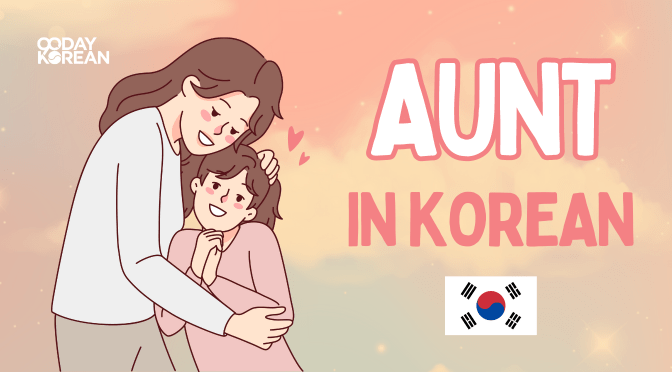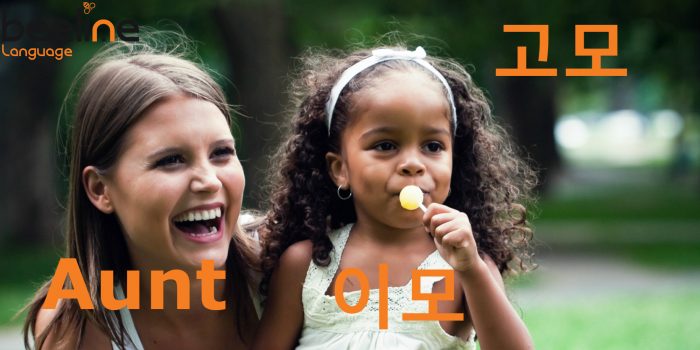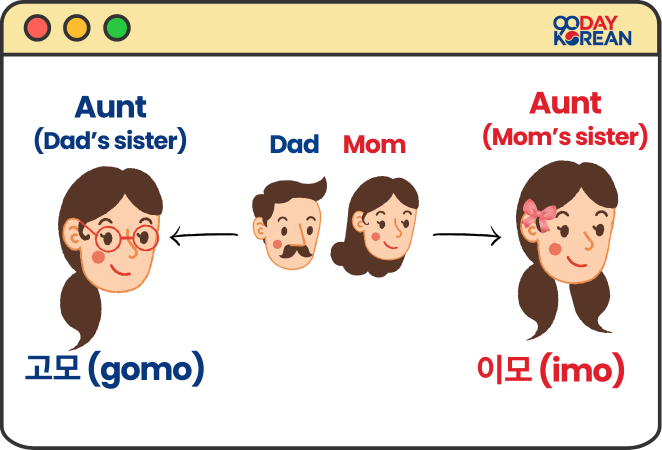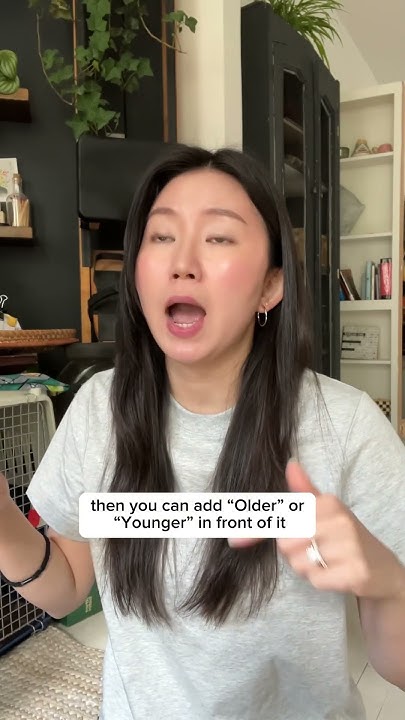How Do You Say Aunt In Korean

So, you're diving into the delicious world of Korean culture, maybe through K-dramas, K-pop, or even just a love for kimchi. Fantastic! One thing you'll quickly notice is how important family is. And that means learning how to address all those relatives!
Today, we're tackling a big one: How do you say "aunt" in Korean? Buckle up, because it's not as simple as "auntie." Get ready for a fun, slightly confusing, but ultimately heartwarming journey into Korean kinship.
The Great Auntie Divide: Maternal vs. Paternal
Here's the kicker: Korean differentiates between aunts on your mom's side and aunts on your dad's side. Seriously! It's like the auntie universe split into two different galaxies.
Let's start with your mom's sisters. These lovely ladies are called imo (이모). Think of them as your direct maternal link, carrying on the family line (at least, that's how I remember it!). It's a pretty straightforward word and generally easy to pronounce.
Now, for the aunts on your dad's side. This is where things get a little… detailed. If your aunt is older than your dad, she's called gomo (고모). This signals her seniority within your paternal family.
Confused yet? Don't worry, it gets better! What about your dad's younger sister? She is still gomo! All sisters of your father are 고모 regardless of the age difference.
Beyond Blood: Aunts by Marriage and Respect
But wait, there's more! What about your mom's female friends? Or just any older woman you want to show respect to?
Often, you can use imo (이모) to address them as well! It's a sign of closeness and familiarity, almost like you're adopting them into your extended family.
Similarly, the wives of your uncles (on either side of the family!) also get special titles. The wife of your maternal uncle is called oe 숙모 (oe-sukmo). It's quite the mouthful, isn't it?
On the other hand, the wife of your father’s brother would be 큰어머니 (keun eomeoni) if he is older, 작은어머니 (jakeun eomeoni) if he is younger.
Why All the Fuss? Respect and Relationships
Why all these different words? It all boils down to respect (jondaemal, 존댓말) and clearly defining relationships. Korean culture places a huge emphasis on hierarchy and knowing your place within the family tree.
These terms aren't just labels; they're signals. They show you understand the complex web of connections and that you respect the elders in your life.
Think of it like this: using the correct term for your aunt is like giving her a verbal hug, acknowledging her position and importance in your life.
Auntie Adventures: Mishaps and Memories
So, what happens if you mess it up? Honestly, probably nothing too dramatic. Koreans are generally understanding, especially when they know you're learning. A little sheepish apology and a corrected term usually do the trick!
The most important thing is to show respect and genuine affection for your aunts. Whether you call them imo, gomo, or something else entirely, it's the thought that counts.
Ultimately, learning how to say "aunt" in Korean is more than just memorizing vocabulary. It's about understanding a culture that values family, respect, and the beautiful, sometimes complicated, bonds that tie us all together.
So go forth, embrace the auntie divide, and spread the love! And remember, a smile and a heartfelt "annyeonghaseyo" (안녕하세요 - hello) can go a long way, even if you accidentally call your gomo an imo!


















